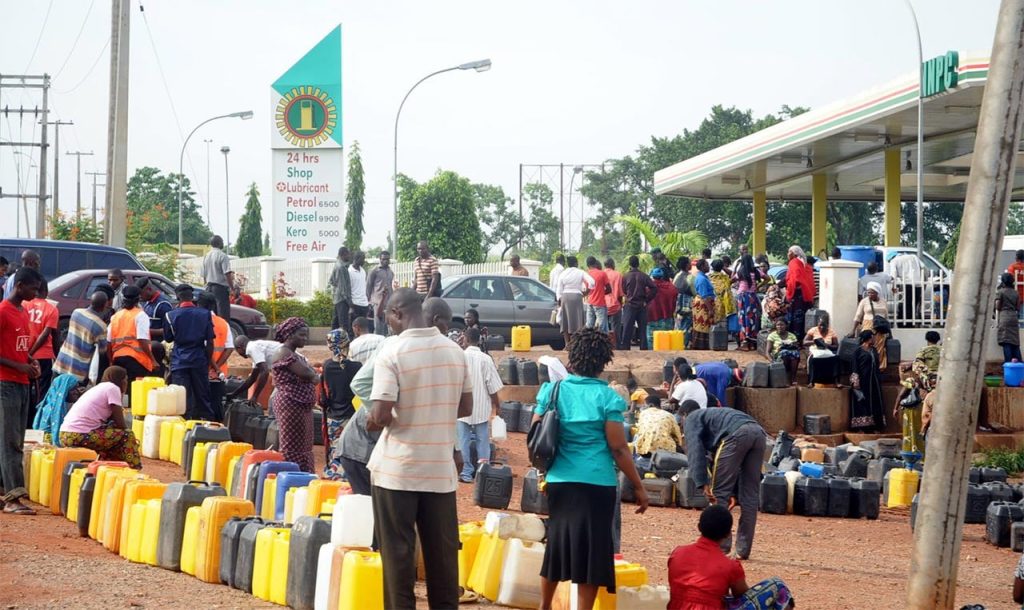The revitalization of Nigeria’s downstream oil sector hinges on the successful rehabilitation of its 21 dormant fuel depots, a move eagerly anticipated by oil marketers following the recent restart of the Port Harcourt and Warri refineries by the Nigerian National Petroleum Company Limited (NNPCL). Marketers believe that bringing these depots back online is crucial for maximizing the benefits of the revived refineries and reducing fuel costs for Nigerians. The current reliance on private depots incurs extra costs for the NNPCL, highlighting the financial prudence of restoring its own infrastructure. The Independent Petroleum Marketers Association of Nigeria (IPMAN) stresses the urgency of this revamp, citing the potential for reduced operational hazards, lower fuel prices, and decreased reliance on road transport, which in turn minimizes accidents, vehicle wear and tear, and diesel consumption.
Nigeria’s network of over 5,120km of pipelines and strategically located depots were designed to efficiently distribute refined products across the nation. However, years of neglect due to declining domestic production and a shift towards fuel imports have left these depots in a state of disrepair. The pipelines, crucial for transporting crude oil to refineries and refined products to depots, have suffered extensive vandalism and deterioration, forcing the NNPCL to rely heavily on private depot owners and road tankers, a significantly more expensive and less efficient distribution method. This dependence not only increases costs for the NNPCL, as evidenced by the substantial throughput charges paid to private depot owners, but also contributes to higher fuel prices for consumers.
The current state of disrepair across the 21 depots, located in major cities across the country, is a significant impediment to efficient fuel distribution. IPMAN highlights the critical need for pipeline repairs, emphasizing that vandalism and bunkering have rendered the pipelines largely ineffective. The resulting product losses necessitate costly repairs and security measures, including drone surveillance and community involvement, to protect this vital infrastructure. Experts concur that the lack of functioning pipelines and depots is a major bottleneck in the downstream sector, hindering the smooth flow of refined products and contributing to increased costs.
The NNPCL, while acknowledging the need for rehabilitation, has been slow to take decisive action. While the company has stated its commitment to restoring the pipelines and depots, concrete progress has been limited. This inaction has left marketers and experts frustrated, as the potential benefits of a functional depot network remain unrealized. The NNPCL’s silence on the matter further fuels concerns about the company’s commitment to addressing this critical issue. The financial burden of relying on private depots and the inherent inefficiencies of road transport continue to weigh heavily on the downstream sector.
However, a glimmer of hope emerges from recent reports of NNPCL officials being deployed to the Port Harcourt depot, suggesting preparations for its reactivation. This, coupled with the company’s previous statements about initiating the pipeline rehabilitation process, indicates a potential shift towards addressing the long-neglected infrastructure. While the process is expected to be gradual, the deployment of personnel suggests a tangible step towards restoring the depots to operational status. This development offers a much-needed boost to the downstream sector and signals a potential reduction in fuel costs and improved distribution efficiency.
Ultimately, the successful revitalization of Nigeria’s downstream sector hinges on a multi-pronged approach. Restoring the depots and pipelines is paramount, requiring substantial investment and a commitment to ongoing maintenance and security. Experts advocate for private sector participation in funding and managing the midstream infrastructure, arguing that this would inject much-needed capital and expertise. Furthermore, community engagement is crucial to combating vandalism and ensuring the long-term sustainability of the pipeline network. By addressing these critical infrastructure challenges and fostering private sector involvement, Nigeria can unlock the full potential of its downstream oil sector and ensure a more efficient and cost-effective fuel supply for its citizens.














